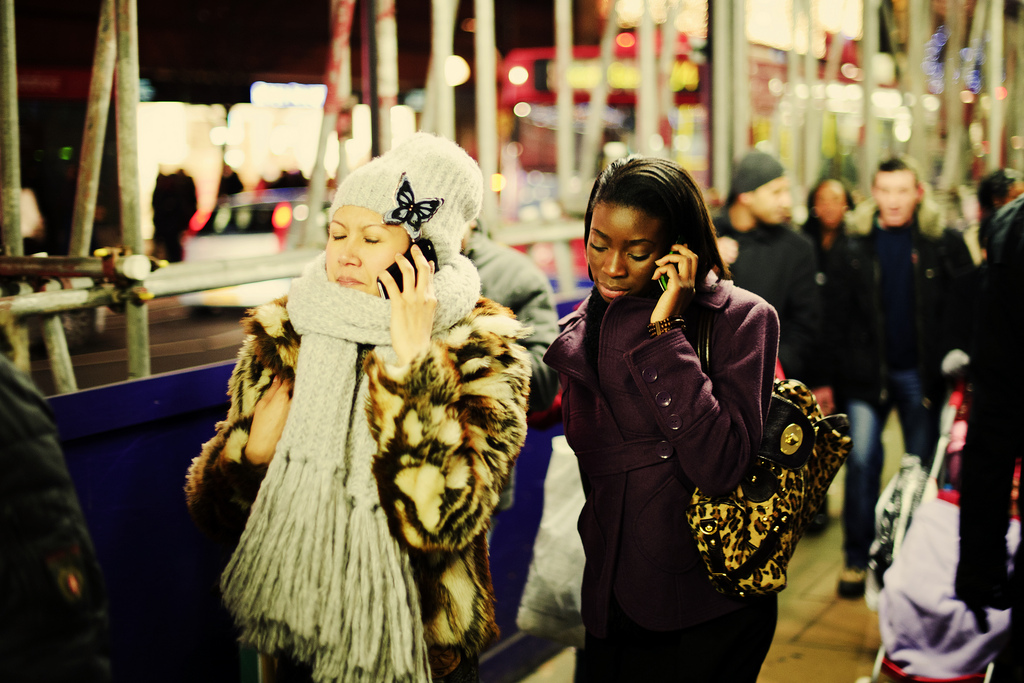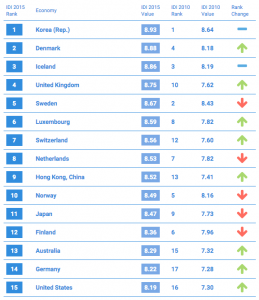According to the International Telecommunication Union, there are about 3.2 billion people online. Mobile networks are leading the way to connecting people for the next generation of communications. There are about 7.1 billion subscriptions globally and 95% of people in the world are within reach of a mobile network signal.
The Republic of Korea leads the world as the most-connected place. European countries along with Southeast Asia countries Japan and China follow afterwards. The United States comes at #15. This is with respect to Internet connectivity and how well data services are adopted in that country. The list below does not correlate with how fast the country’s economy is growing. Rather, it correlates with how many people have online access in that country.
Photo Credit: TechCrunch
The downside of this news is that there are still about 350 million without Internet access. These include people in some of the poorest countries in the world, such as Malawi, Madagascar, Ethiopia, Eritrea and Chad, which are the five least-connected countries globally in descending order. These countries are referred to as least developed countries, or LDCs. Projects such as Project Loon by Google and “Free Basics” by Facebook are attempting to resolve this extreme gap.
There has been an improvement of the “middle class” countries pertaining to the Information and Communication Technology (ICT) Developmental Index (IDI) growth. Universal online access contributes to globalization.
Article via TechCrunch, Nov 30, 2015
Photo: Vardøger [Déjà Vu] by Chris JL [Creative Commons Attribution-NonCommercial-NoDerivs]


